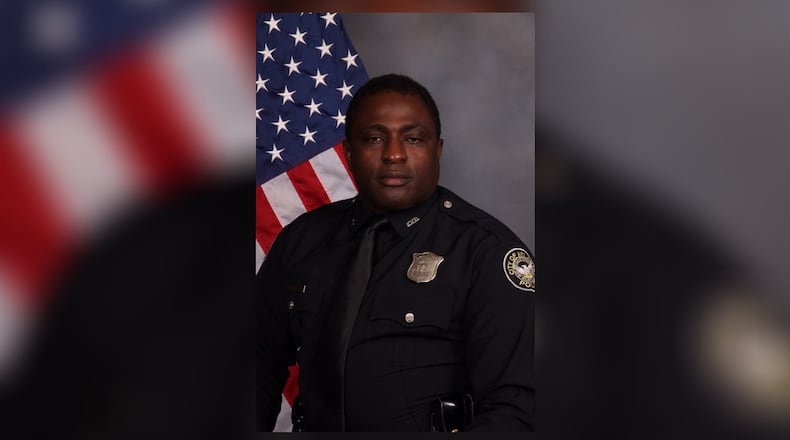A former Atlanta police officer, who was indicted in the 2019 shooting death of a teenager, will have to stand trial after his motion for immunity was denied Thursday.
After consideration, Judge Eric Dunaway ruled that Oliver Simmonds did not meet the burden needed to be granted immunity and denied the motion.
“Based on the evidence and the burden on this case, I’m going to find that Mr. Simmonds has failed to carry that burden,” Dunaway said.
Simmonds was indicted in October 2022 by a Fulton County grand jury after the 2019 shooting death of 18-year-old D’Ettrick Griffin, who was accused of taking Simmonds’ unmarked car at a southwest Atlanta gas station.
Simmonds, who at one time was assigned to former Mayor Keisha Lance Bottoms’ security detail, retired from the Atlanta Police Department in November 2022, shortly after being indicted.
Simmonds was charged with felony murder, aggravated assault and two counts of violating his oath. He turned himself in, was booked at the Fulton County Jail on Nov. 4, 2022 and released on the same day on a $50,000 bond, according to jail records.
On Thursday, a hearing was held to determine whether or not Simmonds would be granted immunity from prosecution. In his motion, Simmonds’ attorney, Jackie Patterson, argued that Simmonds was immune from prosecution since he was “justified in his action” because he believed that “such force or threat of force was necessary to defend himself from imminent use of unlawful force by his accusers.”
Simmonds was off-duty and not wearing his uniform when he stopped to fill up his car at a gas station on the night of Jan. 15, 2019. Griffin allegedly jumped into Simmonds’ driver seat while he was pumping gas and took off, authorities said. It’s unclear if Griffin knew he was taking a police car.
Credit: Jonathan Hibbert
Credit: Jonathan Hibbert
According to the GBI, Griffin began to drive off before Simmonds tried to stop him, firing multiple shots at Griffin. The car traveled a short distance before crashing into two parked vehicles, with Griffin, who was unarmed, found dead inside.
In court, Patterson argued that Simmonds feared he was going to get run over and citizens in the area could be injured at the time of the incident.
Simmonds suffered a minor injury to his foot after he was allegedly run over during the encounter. The shooting brought to light a debate over when, or even if, officers should fire at fleeing vehicles.
According to Atlanta Police Department policy, officers are prohibited from firing their weapons to stop a fleeing vehicle but includes a broad exception that allows a “reasonable and necessary” use of force.
Simmonds was initially assigned to an administrative role after the shooting. Department officials suspended him without pay following the indictment and an emergency hearing had been scheduled to determine his fate with the department before he retired.
He joined the department in April 2010.
The trial is expected to take place over the summer.
About the Author
The Latest
Featured


